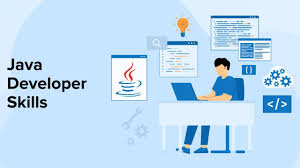
Java remains among the most frequently used programming languages, enabling mobile applications, enterprise apps and cloud-based solutions. To succeed as a Java program, mastering essential abilities and techniques is vital. This article provides essential Java developer abilities as well as practical suggestions to improve your efficiency in coding and improve your career opportunities.
1. Mastering Core Java Concepts
An understanding of the core concepts of Java is essential. The object-oriented programming (OOP) concepts such as inheritance, encapsulation and polymorphism are the foundation of Java applications. Knowing how to use the Java Collections Framework (Lists, Sets, Maps) is crucial for effective data handling. Furthermore multithreading, handling of exceptions and multithreading assist in creating efficient and high-performance apps.
Java 8 introduced powerful features like lambda expressions Stream API for data processing and the optional class to handle null values in a more secure way. Maintaining a current knowledge of the latest Java version (Java 11-17 and beyond) allows you to benefit from the latest enhancements.
2. Working with Java Frameworks and Tools
Spring Framework is an essential tool for the modern Java development, particularly Spring Boot to speed up application development. It makes dependency management easier security, as well as interactions with databases. Hibernate ORM simplifies the database process, cutting the amount of boilerplate code, and increasing efficiency.
Build tools such as Maven and Gradle assist in automatizing the management of dependencies and build projects and logging frameworks such as SLF4J and Log4j enhance monitoring and debugging.
3. Writing Efficient and Clean Code
Maintainability and readability of code are just as important as the functionality. Utilizing best practices such as making use of meaningful variables as well as applying SOLID principles and avoiding redundant code make apps easily manageable and scalable.
Techniques to optimize performance including using StringBuilder in place of String concatenation in loops decreasing memory consumption as well as optimizing queries to databases to make sure that applications run smoothly. Debugging tools such JConsole and VisualVM aid in monitoring the performance of your application and improve its the speed of execution.
4. Expanding Knowledge in APIs and Testing
Java developers often use RESTful APIs JSON Processing tools such as Jackson and other third-party libraries to provide more capabilities. Writing unit tests using JUnit or TestNG guarantees security and avoids bugs. The test-driven approach to development (TDD) is an efficient method to write high-quality code.
5. Developing Soft Skills and Continuous Learning
Beyond technical proficiency and problem-solving skills along with effective communication skills and teamwork are vital. Becoming aware of industry trends and exploring new technologies and participating in open-source projects can boost the development of your career.
Final Thoughts
Learning Java requires a combination of solid core programming skills as well as experience with modern frameworks, and a dedication to creating efficient and maintainable code. By following these suggestions and keeping up-to-date with the latest advances in Java Certification course online and developments, you can have an impressive career as an Java developer.